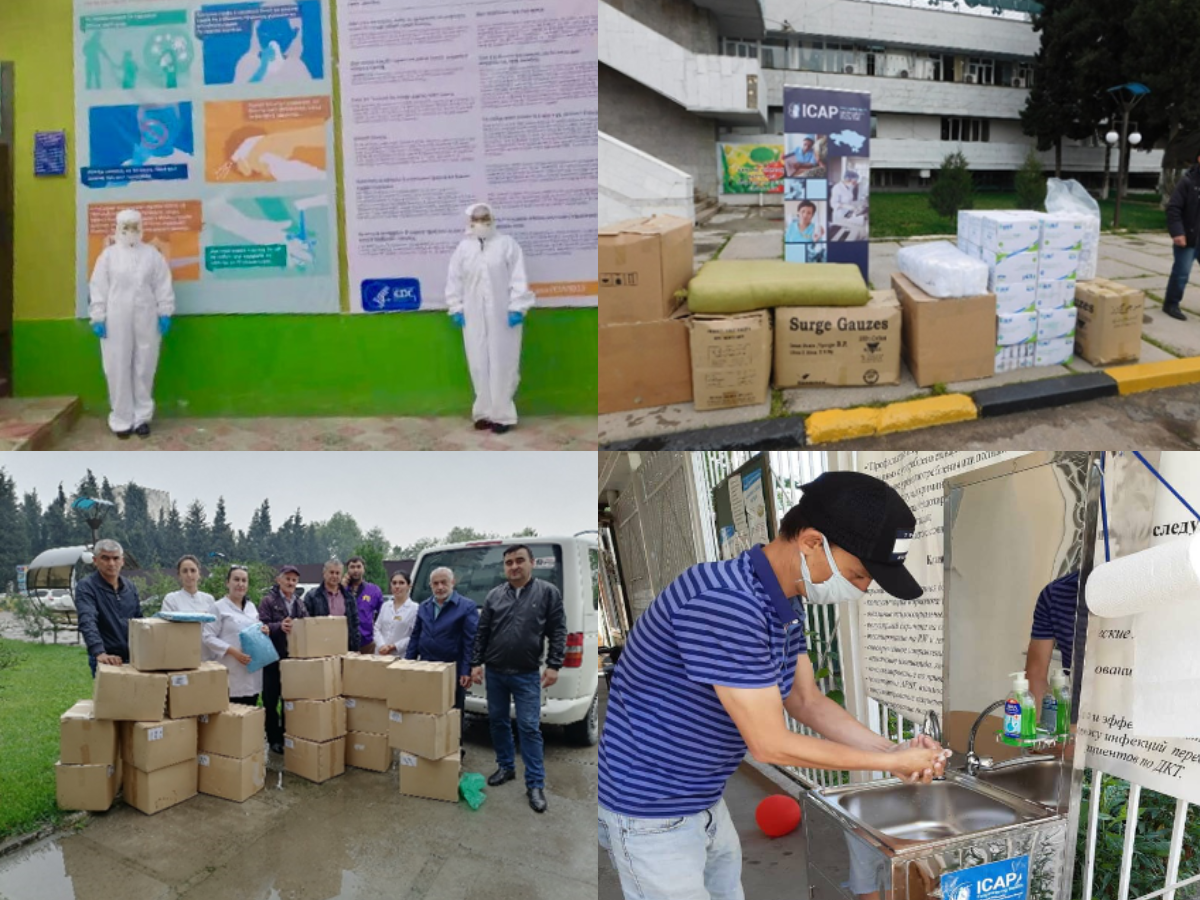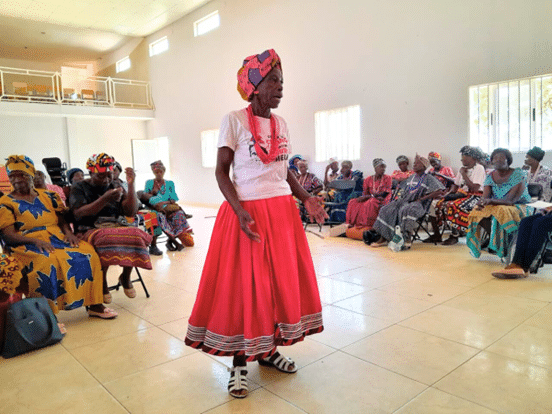When the Republic of Tajikistan’s Ministry of Health and Social Protection requested aid to develop COVID-19 infection prevention control protocols for the country in March this year, ICAP was one of the first organizations to respond to the request.
With support from the President’s Emergency Plan for AIDS Relief (PEPFAR) through the U.S. Centers for Disease Control and Prevention (CDC), ICAP in Tajikistan provided financial and technical assistance to the ministry to conduct preparatory medical and preventive measures in response to the COVID-19 pandemic.
“ICAP was the first organization to purchase personal protective equipment for patients and medical personnel,” said Alijon Soliev, MD, deputy director of the National AIDS Center, Tajikistan. “ICAP’s quick response has been crucial in strengthening our health care system to combat this virus,” Dr. Soliev said.
The ICAP team in Tajikistan purchased respirators, medical masks, disposable gloves, protective suits for frontline workers, and hand wash basin for patients for Tajikistan’s national HIV/AIDS and narcology centers.
ICAP also created and distributed banners with information on symptoms of COVID-19, and recommendations for managing patients, that the AIDS and narcology centers posted at their facility entrances.
Then ICAP organized a series of online COVID-19 Zoom® and ECHO training sessions for over 300 health care providers. The providers learned about the latest research on the coronavirus, including the mode of transmission and diagnosis, infection control measures in health facilities, the importance of social distancing, and the use of personal protective equipment. Participants included staff of the HIV/AIDS service, doctors who work in infection wards in Dushanbe and districts of the republican subordination, Sughd Region, GBAO, and Kahlon Region. Other participants were from the national and regional narcology centers.
Since the Tajikistan government instituted COVID-19 protocols in March, to date ICAP in Tajikistan has supported the Ministry of Health and Social Protection with almost $40,000 worth of personal protective equipment for patients living with HIV, and staff of the AIDS and narcology centers.
ICAP has rapidly mobilized high-impact initiatives in response to the novel coronavirus in countries with fragile health systems since the disease became a pandemic earlier this year. Tajikistan is one of such countries where ICAP has developed and implemented innovative approaches to health systems and large-scale research projects.
Zuhro Nurlyaminova is deputy director of the Tajikistan National HIV/AIDS Center. “Through ICAP, we have been equipped with much-needed knowledge, which has helped us detect and handle COVID-19 cases in Tajikistan,” he said.








